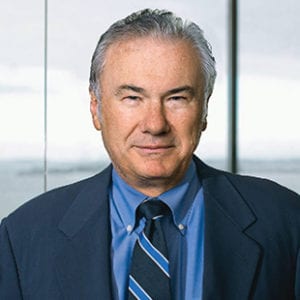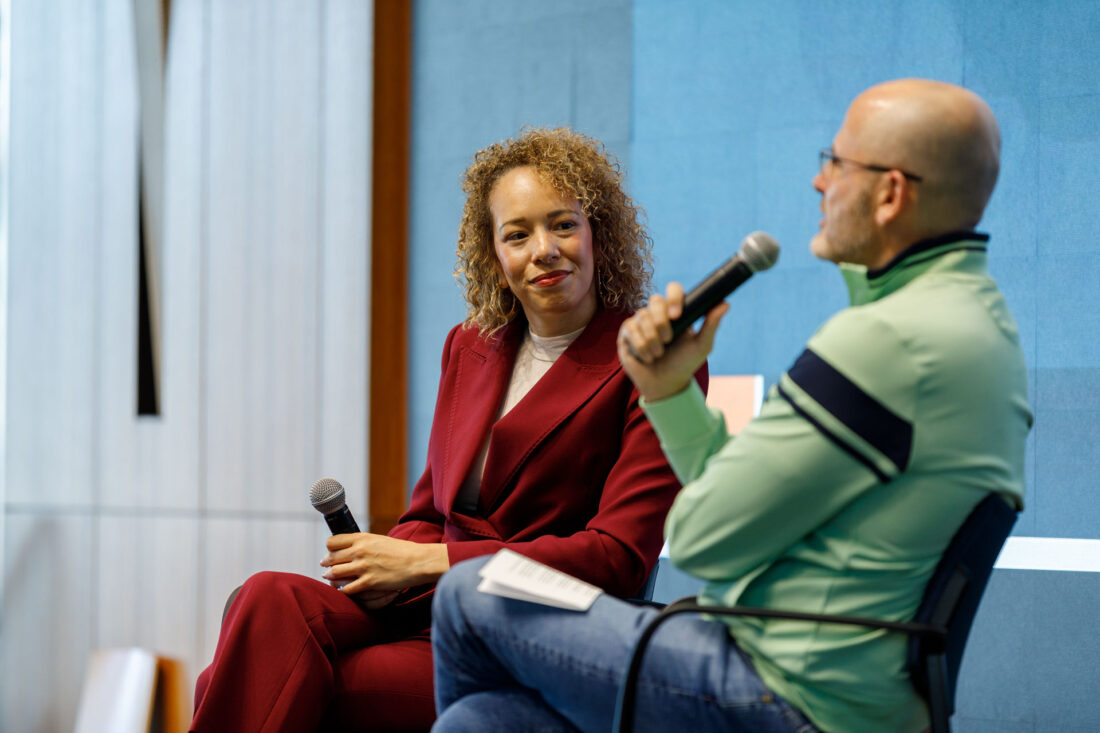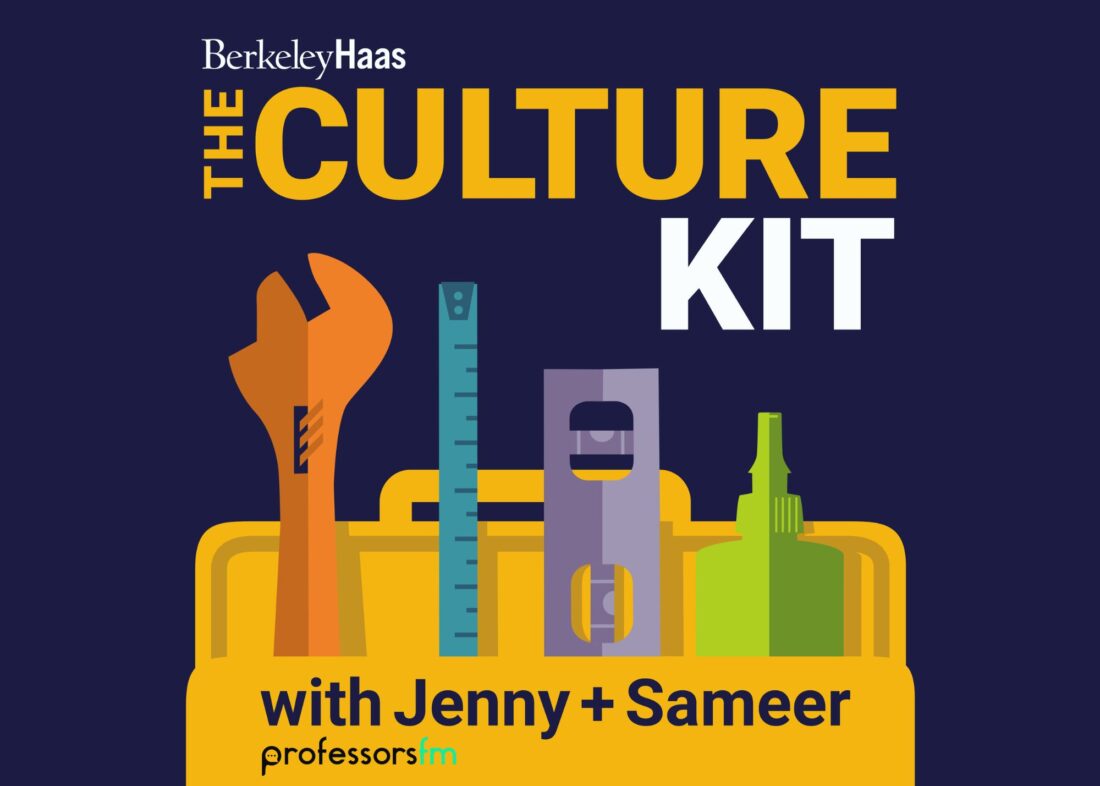Culture runs deep: The Berkeley Haas Defining Leadership Principles turn 15

For many years, we have both been deeply and personally influenced by the work of Ikujiro Nonaka, MBA 68, PhD 72, as well as his cherished friendship. He brought an unusual philosophical perspective to the study of knowledge and management in organizations. His death in January leaves a gap that will be hard to fill. This is an apt moment to share some memories of our work with him and his influence on our own research.
Reflections from Professor David Teece, Berkeley Haas
Nonaka-san’s career took off quite early, when a management program he developed for Fuji Electric was offered to companies throughout Japan. In 1965, he moved to California, where he completed an MBA in 1968 and a marketing PhD in 1972 at U.C. Berkeley. In the early 1990s, he returned on a sabbatical and took my MBA evening class on “Management of Innovation and Change,” where we discussed tacit versus codified knowledge, intellectual capital, and related ideas. He told me that exposure to this context was a catalyst for the pivot that would define his career: a human-based conception of the knowledge-creating company.
The breakthrough was his 1994 publication of “A Dynamic Theory of Organizational Knowledge Creation,” in Organization Science, which helped establish the field of knowledge management as a discipline. This was followed in 1995 by a book with his longtime friend and fellow Berkeley PhD Hirotaka Takeuchi (Haas PhD 1977), “The Knowledge-Creating Company: How Japanese Companies Create the Dynamics of Innovation.” These works laid out the model of SECI (Socialization, Externalization, Combination, and Internalization) of how an organization creates benefits from the knowledge within its people only when that knowledge is shared in a spirit of collaboration in a virtuous cycle of collective knowledge creation to be guided by the distinct vision of its managers. While his own presentations tend toward the philosophical, others have been able to operationalize SECI in fields as diverse as information technology and healthcare.
Over the years, we became colleagues, co-teaching executive education courses for Japanese companies in Japan and the U.S. Nonaka-san returned to Berkeley with some frequency to meet with me and other faculty and to teach. In later years, we exchanged visits between Berkeley and Tokyo, presenting seminars and exchanging ideas. His ideas left indelible imprints on many Haas graduate students, as well as on other scholars around the world.
One of Nonaka-san’s many strengths was his ability to recognize fundamental processes that have not lost their relevance with shifts in technology or management trends. His 1986 HBR article (also with Hirotaka Takeuchi), correctly identified the need for product development to become faster and more flexible. Trends since that time have only intensified this need, and most companies adopted rapid innovation cycles as standard practice.

Reflections from Professor Henry Mintzberg, McGill University
When I learned of the sad passing of our cherished colleague, Ikujiro Nonaka, I sent the following message to his family:
Jiro, as I knew him as a good and generous friend, was a legend in his field, and a wonderful human being to his students and his colleagues. He made the initial connection from which we in the West learned so much from Japanese practice about managing organizations and the role of culture in making organizations human. We shall miss him dearly.
I do not recall when I first met Nonaka-san, who I came to know as Jiro, but it must have been through his devoted student, Hiro Itami, who had become a good friend, as did Jiro after that. What I do recall is we three proper professors at delightful dinners—animated and playful.
Nonaka-san had become a major force in the field of management in Japan when, in 1995, I approached Itami-san about a partnership in a proposed worldwide program to develop managers by encouraging them to reflect on, and share, their own experience—which later became the International Masters Program for Managers. Itami-san’s immediate response was to approach his esteemed senior colleague and mentor, without whom this collaboration might not have happened. While some faculty dismissed what we were proposing—how could a program for managers not be based on the case study method?—Nonaka-san supported the idea immediately. He subsequently taught in the Japanese module of the IMPM for many years. The IMPM continues to this day, now hosted in Japan by Yokohama University.
Of Nonaka-san’s many influential publications, my favourite is his article “Toward Middle-Up-Down Management”, not only because it represents so pointedly the spirit of the Japanese approach to management that has had such profound impact on the practice of management in the West, but also because of the playful nature of the title—rare in the eminent journals of academe. Moreover, middle-up-down describes Nonaka-san’s work itself: “down:” his notion that knowledge flows from the experience of individuals; “up:’ carrying that into his general theory of organizational knowledge creation; and “middle:” referring to middle managers—like Nonaka-san himself, guiding the process. Just days ago, I was working on an article about the need for bottom-up management alongside the top-down form that has had a recent resurgence in the West: Nonaka-san’s insights remain not only pertinent, but more necessary than ever.
To my mind, Nonaka-san stands alongside management forebears like W. Edward Deming in carrying the spirit of Japanese culture into the West, directly and personally. Deming took his own ideas about managing quality—initially ignored in the West—into Japan, where they developed into a unique approach to excellence in manufacturing that he eventually took back to America. Similarly, Nonaka-san took the initial inspiration of David Teece’s perspective on organizational knowledge and merged it through his own culturally Japanese perspective into a powerful framework of knowledge generation, which he introduced to America and the world.
Might we conclude by noting that Nonaka-san enhanced Western practice with a certain Japanese conscience? This constituted a more humanistic, participatory approach to management, compared with the more technocratic tendencies in the West. That may have had its heyday in the 1980s; today, the large corporations pay less attention to these concerns, which indicates how much the messages of Nonaka-san need to be brought back, front and center, beside middle, up, and down.
Following Nonaka-san’s visionary messages
At a farewell gathering on January 25th, a message card with a collection of Professor Nonaka’s phrases was handed out with the following comment: “Mr. Ikujiro Nonaka has departed for his eternal journey. It is up to us to carry out his vision.”
Here, in an English translation provided by the Nonaka Lab at Hitotsubashi University, are those phrases, which we annotate with a few words of our own to suggest how his profound insights remain applicable, not only in the field of management and knowledge creation but also in these troubled times globally.
・経営とは、生き方(a way of life)である
Management is a way of life.
… especially as prescribed by Professor Nonaka.
・意味を問わなければ、イノベーションは生まれない
Innovation cannot emerge without seeking its meaning.
Has there ever been more need to question meaning than right now?
・野性を磨け!賢慮を育め!
Refine your “Yasei” (primal instinct)! Cultivate practical wisdom!
Thinking fast and reflecting are both important.
・考える前に感じろ
Feel before you think.
Middle-up-down management implies that thinking need not always come first; sometimes we need to act in order to understand.
・イノベーションは、共感と対話からはじまる
Innovating begins with empathy and dialogue.
This message needs to extend well beyond the management of organizations to the leadership of our societies.
・現実の只中で本質を直観せよ
Grasp the essence in an ever-changing reality
This can be seen as the essence of management.
・人は関係性の中で人になる
We become Human Beings in the relationships with others.
…which suggests that we are human beings, not human resources.
・異質との出会いを楽しもう
Embrace encounters with the unfamiliar and diversity.
The writings of Professor Nonaka have always challenged us to think in new ways!
・忖度するな!全身全霊で知的コンバットせよ
Reject blind conformity! Engage in “Intellectual Combat” with your whole being!
…with Professor Nonaka as a role model.
・スクラムを組み、集合知を創造せよ
Form a scrum without boundaries and create collective wisdom.
Are we losing this critical message? Without acting together, we put ourselves in grave danger, globally as well as organizationally.
・自己変革に挑み続けよう
Keep transforming – within yourself and beyond!
..humanistically.
・覚悟を持ってやり抜け!
Commit with conviction and see it through!
Half-hearted measures fall short in business and in life more generally.
・われわれは世界平和のためのチームだ
We are a team, contributing to world peace!
We had better be, for the sake of our survival.
・未来の共通善に向かって、「物語り」を共に創ろう
Together, let’s co-create a narrative toward the common good.
We need a new one, for constructive balance in the world.
・暴れまわるぞ!
Don’t settle – Keep fighting, make a difference!
We need this in mind now more than ever.
Looking back on Nonaka-san’s noteworthy life and forward to the world as it is unfolding, we are once more grateful for Professor Nonaka’s significant legacy and wish that it will live on to help us face future challenges.
Posted in:
Topics:




